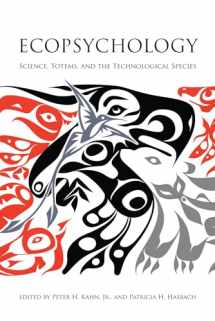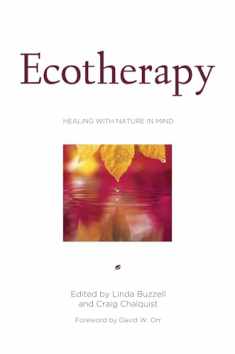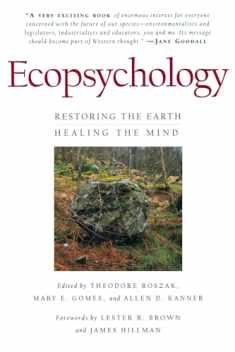
Ecopsychology: Science, Totems, and the Technological Species
Book details
Summary
Description
An ecopsychology that integrates our totemic selves―our kinship with a more than human world―with our technological selves.
We need nature for our physical and psychological well-being. Our actions reflect this when we turn to beloved pets for companionship, vacation in spots of natural splendor, or spend hours working in the garden. Yet we are also a technological species and have been since we fashioned tools out of stone. Thus one of this century's central challenges is to embrace our kinship with a more-than-human world―"our totemic self"―and integrate that kinship with our scientific culture and technological selves.
This book takes on that challenge and proposes a reenvisioned ecopsychology. Contributors consider such topics as the innate tendency for people to bond with local place; a meaningful nature language; the epidemiological evidence for the health benefits of nature interaction; the theory and practice of ecotherapy; Gaia theory; ecovillages; the neuroscience of perceiving natural beauty; and sacred geography. Taken together, the essays offer a vision for human flourishing and for a more grounded and realistic environmental psychology.


We would LOVE it if you could help us and other readers by reviewing the book
Book review





